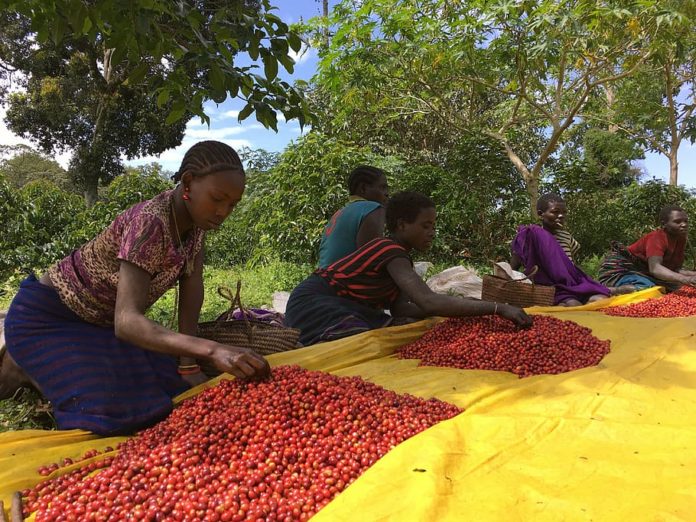Africa’s agricultural sector is growing at 2.7% every year. The agricultural opportunity is significant, as better crop practices have been shown to lead to 3x better yields.
However, Agricultural businesses face many challenges including cash flow, seasonality, losing profits to middlemen, and climatic events. Farmers must meet the changing needs of the planet and the expectations of regulators, consumers, and food processors and retailers.
About 175 million African smallholder farmers can’t get access to credit, because they haven’t got digital histories or collateral to guarantee loans. Lenders are wary because it’s hard to validate customers in remote locations, who often lack formal ID – even in more developed countries with centralised records, poor data qualities means they have to perform expensive checks, and in many cases it’s not worth the revenue.
Farmers also struggle to get decent prices for their crops, with middle men taking the lion’s share of profits. But buyers also struggle, because it’s hard to keep production constant, with irregular supplies and a lack of visibility of where crops are being delivered. Through a combination of inability to manage cashflow to grow better crops, and low rewards for the crops they grow, farmers are trapped in generational poverty. In some countries, crop quality prevents them reaching export markets and better prices.
hiveonline’s digital cooperatives platform
Despite the challenges, various measures have been put in place to help farmers progress and yield profits. Among them is hiveonline‘s digital cooperatives platform which helps farmers increase revenues, with access to credit and markets, investment for farming inputs, simplifying accounting and management for cooperatives, farmer associations and savings groups.
hiveonline is a family of mobile apps and dashboards adapted for different types of community groups such as cooperatives, farmers’ associations and savings groups, and their agricultural ecosystem. Their digital community finance solution gives access to credit and markets to unbanked producers, and members don’t need a phone.
hiveonline uses existing community structures to manage data, so group members can have an account, ID, credit history and wallet, without needing their own phone for full inclusion, bridging the digital divide. This provides scale safe and private digital identity and financial tools to allow people and small businesses to thrive in the digital economy.
The apps are based on common core services of fund management/group ownership, commercial and group accounting, crop forecasting and delivery, reputation (alternative credit score) and other digital assets that can be used as vouchers or credit disbursement. It’s in 7 languages and works with very weak or dropped signal, and is constantly engineered to work better offline. It’s on the Stellar blockchain for low energy, cheap transactions.
It’s built with low-energy blockchain and ML, for better record-keeping, transparency and security. It’s a PWA (Progressive Web App) so while it looks like an app, it never needs updating and can operate with poor or interrupted signal.
The app has been used in several countries including Mozambique, Zambia and Uganda and could be used by cooperatives, associations or communities in any developing country to improve outputs and grow community wealth. Co-operatives and groups can record their commercial and financial transactions, to build up a digital history and give visibility of crop forecasts.hiveonline’s solution was recently recognized by MIT, who included it in MIT Solve’s 2021 Digital Inclusion Solver Class.
Buyers benefit from visibility of crop forecasts, to pre-buy produce and keep production predictable. Lenders benefit from low-cost, reliable credit assessment and KYC, and access to new customer groups.
Farmers benefit from smoother cashflow, access to credit and farming inputs for better yields. Merchants benefit from line of credit lending through secure blockchain based tokens. NGOs and governments benefit from better data, secure voucher disbursement and predictive analytics. Global buyers benefit from last mile visibility, for ESG reporting.
The system is currently being rolled out in Nigeria, Lebanon and Kenya and aims at reaching an addressable market of 30% of sub-Saharan Africa’s 175 million smallholder farmers and their commercial ecosystem (plus Lebanon).








